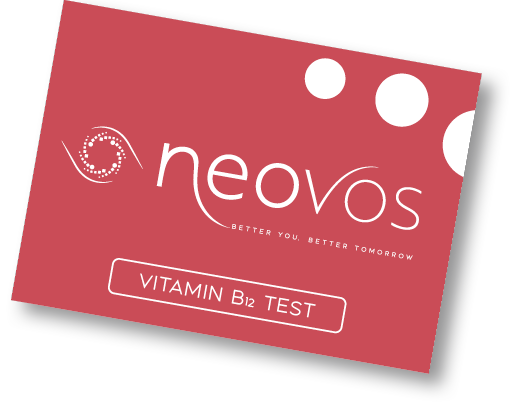
Getting enough B12 from your vegan or vegetarian diet?
Vegan or vegetarian diets have become popular lifestyle choice, whether that is for reasons of sustainability, animal welfare or dietary preference. If managed well, with an emphasis on a diverse range of unprocessed plant foods, many people find these types of diets beneficial. However, there are a small amount of nutrients that may be harder to obtain, particularly from a vegan diet…
Getting your Vitamin B12
One such nutrient is vitamin B12, which is essential for our nervous system, the maintenance of bones, nails, hair and skin, energy production and even our cells. According to research, at least 11% of vegans in the UK are deficient in vitamin B12.1
That is because it is mainly obtained from animal protein, and it has been thought for some time that B12 is unobtainable from plant foods. In fact, studies have suggested that those plant foods that appear to contain B12 contain analogue B12, popularly known as ‘false B12’. This is an inactive form of the vitamin that can displace ‘real B12’ and consequently reduce someone’s levels. However, with more sensitive testing, it has been found that small amounts of real B12 are in fact present in a limited range of plant foods including nori seaweed, shitake mushrooms and some fermented soy products such as tempeh.2 Although, storage, preparation, fermentation and production methods can influence these amounts, meaning that they can vary considerably.2 For vegetarians, they are also able to find B12 in yoghurt and eggs, albeit not in large amounts. Therefore, supplementing B12 or consuming foods fortified with it, such as nutritional yeast and breakfast cereals, is important.
The recommended intake
The good news is the body can only utilise so much B12, so it is required in smaller amounts than other vitamins. The recommended intake of B12 varies around the world but for adults and children over 15, it is around 4 µg, and slightly more if pregnant or breastfeeding. However, a few factors can impact absorption, such as certain medications, medical conditions, smoking, alcohol and older age. So, it is important to bear in mind that you may only be getting a percentage of the B12 you are consuming.
For instance, if you were to eat a 4g portion of nori seaweed, which contains 3.1 µg of B12, it is estimated that you would only be getting about 50% of this amount. A 30g portion of shitake mushrooms should provide 1.7 µg of B12, but after it is taken into consideration that probably half of it would not be absorbed, the amount of B12 available drops to less than 1 µg. Even if you eat fortified food, such as a 30g portion of breakfast cereal, you are unlikely to get more than 0.3 µg. Compare this to beef liver, the highest source of B12 with 70.7 µg per portion, which even at 50% absorption would still provide a significant amount of B12, well over the daily recommended intake.
Unfortunately, there can be some situations that may reduce someone’s ability to metabolise B12, such as if they have a genetic mutation, which stops them converting the synthetic form of B12 found in many supplements into the natural form, or if they are lacking intrinsic factor which is required for the absorption of B12 in the intestines. Nevertheless, if someone consumes foods that either naturally contain or are fortified with B12 several times a day or take a good supplement they should be getting enough B12 to support their health.
Testing for vitamin B12
If you suspect you may not be getting enough B12, it is important they get tested. Deficiency symptoms may not develop for many years and could permanently affect your health if not detected in time. A B12 blood test, either measuring total or active B12, is not deemed an accurate way of diagnosing a B12 deficiency, particularly if someone is vegan or vegetarian as the test does not differentiate between ‘false B12’ and ‘real B12’. Therefore, a urine test which measures MMA is considered much more effective and can catch a deficiency early! More about this here.
Consuming, absorbing, and utilising B12 is not always a simple process and there are many issues along the way that can trip someone up, particularly if you are vegan or vegetarian. However, taking advantage of a simple urine MMA test, in the comfort of their own home, every few months can provide you with reassurance and make navigating the right diet for them a much simpler process.
References
- Hunt A, Harrington D, Robinson S. Vitamin B12 deficiency BMJ 2014; 349 :g5226 doi:10.1136/bmj.g5226
- Marques de Brito B, Campos VM, Neves FJ, Ramos LR, Tomita LY. Vitamin B12 sources in non-animal foods: a systematic review. Crit Rev Food Sci Nutr. 2023;63(26):7853-7867.

